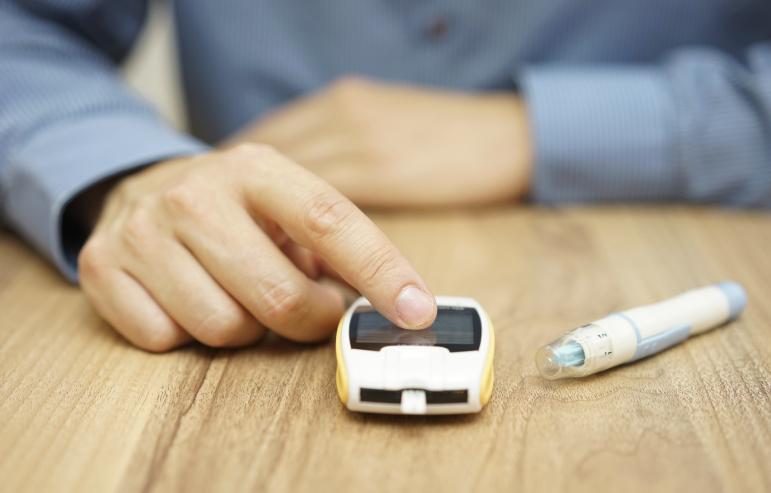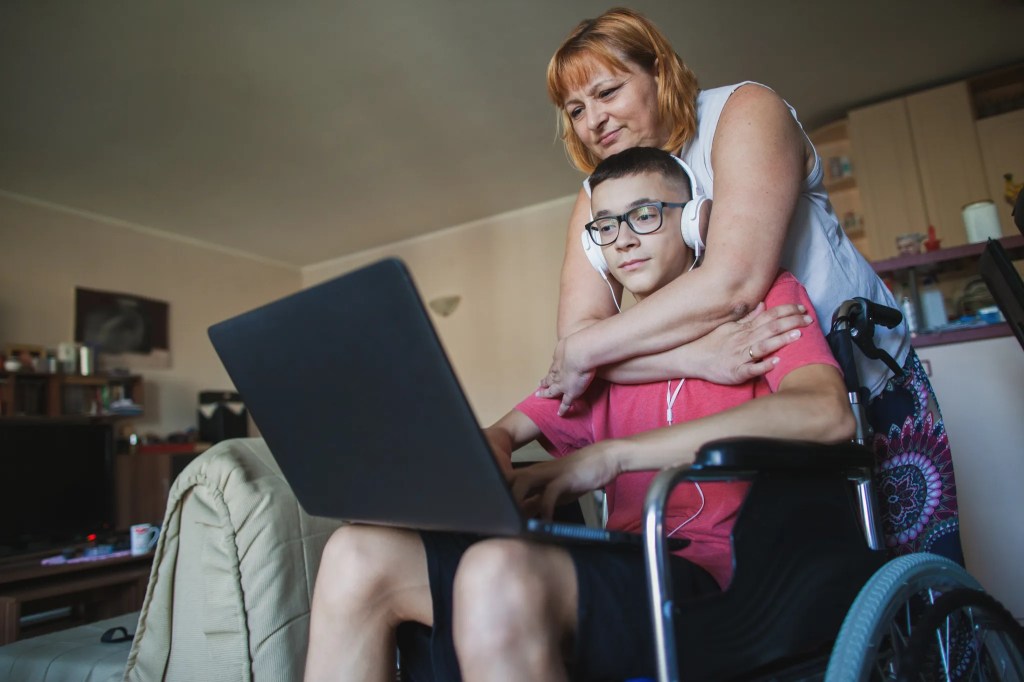
Diabetes Care: A Family Affair
Carol Renaux is a Registered Nurse with Caregiver Homes.
With diabetes on the rise in the U.S., most people have heard the word but have a hard time wrapping their mind around what it truly means. For people who require around-the-clock care, receiving a diabetes or pre-diabetes diagnosis can be paralyzing, and generally means that more life changes are to come. For caregivers, this means big changes as well. A family’s willingness to embrace changes into their own lives can make all the difference in how the disease is managed for their loved one.
In our food-oriented culture, people’s social lives can tend to revolve around eating. When making plans to get together, a common activity is to go out to eat. When guests drop by for a visit, snacks foods are often provided, such as cheese, crackers or cookies—food typically high in calories and fat. For people with diabetes, being constantly surrounded by foods they should limit can make their situation feel helpless. They may either refuse to make changes to their diet or simply ignore the problem. The same is true with exercise. When no one around them makes an effort to increase their physical activity, what motivation do they have to change themselves?
- Help them set reasonable goals. If they lack self-confidence, suggest small goals, such as, “I will walk one block each day and increase an additional block every week until I am walking at least 20 minutes per day,” or “I will plan my meals around vegetables first, and add meat to complement.” Starting small will bring success early on and keep them motivated to continue setting harder, more beneficial goals.
- Eat healthy foods with them. Your loved one will be more motivated and less tempted to eat high-calorie, high-fat food if someone they love eats healthily along with them. If you’ve prepared a nutritious meal for them, make sure to sit down and eat it together. Bringing in foods to the home, like candy or cookies, even if for yourself, will make it hard for them to stay on track.
- For social activities, be active instead of going out to eat. Suggest going for a walk together. Pick a pretty spot, like a park or by the water. If the weather doesn’t permit for going outside, walk around in the mall. Go shopping for crafts, clothes or other items not relating to food.
- Keep a log or a journal. Assist them in recording what and when they eat, along with their blood sugar levels at the time. Look at the log together, searching for patterns. This will help them see for themselves the types and amounts of food that trigger an increase in blood sugar.
- Check in regularly. Monitor their nutrition log and make sure they have frequent check-ins with you or another family member. Someone else showing concern about their habits and well-being will help to hold them accountable for their own health. If their blood sugar is high, ask, “Have you been having a hard time the last couple of days? What do you think is the cause?” Allow them to think through the process and gently offer suggestions to get them back on track.
People with diabetes can be hesitant to ask for help. They may not want to be a burden or just don’t know where to start. As a caregiver, family member, or friend, you have the power to participate in improving your loved one’s health. Small gestures like offering to go for a walk with them, or not eating certain foods around them make all the difference. Like any other disease, diabetes is a family affair. Show them how much you care for them by walking with them on this journey.
More insights like this:
-

Challenges Caregivers Face in Personal Relationships
Read more: Challenges Caregivers Face in Personal RelationshipsEveryone has different expectations for the challenges that a caregiving role might bring, such as the difficulty of managing a loved one’s medical needs or transporting them to appointments. But there are social impacts for caregivers as well. Caregiving goes beyond helping a loved one with health and wellness at home; it can…
-

Caring For Your Child With Disabilities
Read more: Caring For Your Child With DisabilitiesAccording to AARP’s Caregiving in the U.S. 2020 Report, 14.1 million caregivers provide care for children ages 0-17. In addition, one-in-ten parents in the U.S. provide over two and a half hours of unpaid care a day to an adult child. That’s a lot of care. A lot of dedication. And a lot…
